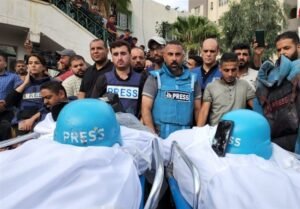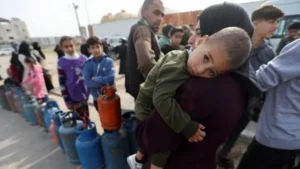Muslim Brotherhood members in Ankara fear Turkish-Egyptian Rapprochement

The young members of the Muslim Brotherhood organization have expressed fear for the Turkish-Egyptian rapprochement.
According to some Egyptian experts, if the Turkish authorities began deporting some wanted young men to Cairo, within the framework of rapprochement, those who do not have the support of the leaders will be sent back home.
An expert on fundamentalist movements, Amr Abdel Moneim, stated that the youth of the Brotherhood are in a state of confusion and uncertainty.
Abdel Moneim believes that Turkey’s decision to oblige anti-Cairo channels to adhere to media charters has kept Brotherhood youth in disarray.
Some of them believe the channels will be shut down permanently, or members will be handed over to Egypt, as happened in February 2019 with Mohammad Abdel Hafeez.
On the possibility of deporting young people and some leaders in the coming period, Abdel Moneim explained that about a year ago, many Egyptians obtained exceptional nationalities or permanent residencies. However, there remains the issue of the members with death sentences, whom Cairo wants, according to the expert.
He estimated there are 8,000 Muslim Brotherhood members in Turkey with their families, and about 3,000 activists.
Abdel Moneim suggested three scenarios for the future of the Brotherhood’s members and their channels in Turkey in light of the rapprochement with Cairo.
The first is not to create issues for the Turkish authorities with Egypt, the second is to find alternatives in other countries, and the third is an individual departure to Canada, the Netherlands, or Malaysia, or a mass departure to countries that are working to have them under an intelligence framework, such as Iran and Malaysia.
Brotherhood leaders believe that Turkish citizenship and media positions can no longer protect them.
Meanwhile, Ahmed Zaghloul, a researcher specializing in fundamentalist movements in Egypt, indicated that the developments of the Egyptian-Turkish rapprochement threaten the youth of the organization in Ankara, especially those who don’t enjoy cover from any leader.
In the latest signs of rapprochement between Ankara and Cairo, Turkish Foreign Minister Mevlut Cavusoglu announced that a senior Turkish diplomatic delegation will visit Cairo in May.
Zaghloul described Turkey’s decision to oblige media to adhere to the charters as instructions to control the Muslim Brotherhood media only.
He indicated that deportation has always been an issue for young members because the leaders have their personal arrangements. It is likely that if the youths are sent back, they will not include those who are supported by the leaders.
A large number of prominent Brotherhood youth are sentenced to life imprisonment or hard labor, and the leaders will not hand them over. Many of them have obtained Turkish residency and have established a network of international relations that may provide protection, especially with human rights organizations.
Zaghloul indicated that the Brotherhood channels will work to control its rhetoric in the coming period, and the leaders will try to use international relations to achieve gains.
A number of the organization’s youth in Ankara complain that the leadership has completely abandoned them, after they were promised to obtain identification papers that enable them to travel outside the country, according to observers.








